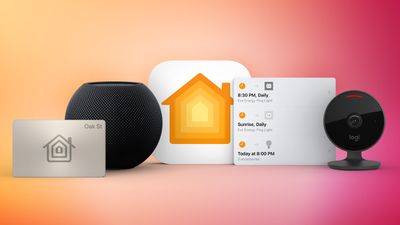Sam Jadallah, Apple's head of Home Services, left the company last week after two years leading some of Apple's work on smart home initiatives.

Jadallah announced his departure on LinkedIn, where he said that it was "a treat to be an entrepreneur within Apple and to create products at scale." Based on some of his tweets, Jadallah worked on digital key-related projects, such as Apple's recent iOS 15 effort to add keys for HomeKit-enabled locks to the Wallet app.
Apple hired Jadallah back in 2019, and his hiring made headlines because he was brought on from Microsoft to improve Apple's work on HomeKit-enabled devices. Jadallah formerly worked at Microsoft, and before joining Apple, he headed up luxury smart lock company Otto.
When Jadallah was hired, many saw it as a sign of Apple's effort to push further into the home space. Apple has been developing its HomeKit protocol and working on home devices like the HomePod for many years now, but it continues to lag behind companies like Amazon and Google, especially in the smart speaker department.
In the two years since Jadallah's hiring, Apple has introduced several new HomeKit initiatives. In addition to expanding the functionality of the digital Wallet app, Apple has also added support for Thread, worked on introducing Matter, and introduced new HomeKit features like HomeKit Secure Video.
It is not clear why Jadallah is leaving Apple or what he plans to do in the future, nor how his departure will impact Apple's home services team. Apple seems to be in the middle of a refocus on its home efforts, and with the launch of the new MacBook Pro models, Apple redesigned its website to group the TV & Home categories together.
Apple is aiming for a total living room strategy that will ultimately see the HomePod and Apple TV combined into a single device that will be able to be used for controlling smart home devices, entertainment, communication, and more.
Recent reports have suggested that Apple is struggling with its hardware strategy, which could impact home services going forward. Apple's engineering team is pessimistic about the future of the Apple TV, a key component in Apple's current smart home ecosystem. Like the HomePod, Apple struggles to get people interested in the Apple TV, with many consumers choosing more affordable set-top boxes from companies like Roku and Amazon.
Apple's plan to combine the HomePod and the Apple TV into one device as a single point of home control could turn things around, but we'll have to wait to see how the strategy pans out following the product's planned 2023 launch.
























